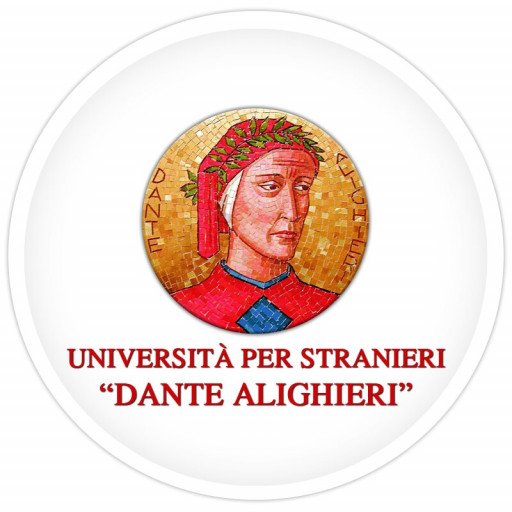Photos of university
The Master’s Degree Programme in Comparative Social Policy and Welfare at Tampere University is an advanced interdisciplinary program designed to equip students with comprehensive knowledge and analytical skills to understand, evaluate, and compare social policies and welfare systems across different countries and cultural contexts. This programme offers a unique opportunity to explore the complex dynamics of social policy development, implementation, and impact from a comparative and thematic perspective, preparing students for careers in research, policy analysis, international organizations, and NGOs.
Throughout the programme, students delve into key themes such as social inclusion, inequality, poverty reduction, health and social care systems, labor market policies, and social security. Emphasizing a multidisciplinary approach, the curriculum combines insights from sociology, political science, economics, and public administration to foster a holistic understanding of social welfare issues. The programme also highlights the importance of empirical research methods and critical analysis, enabling students to conduct comparative studies and contribute to evidence-based policy-making.
Tampere University’s strong emphasis on internationalization means that students will have opportunities to engage with global case studies, participate in exchange programs, and collaborate with universities and organizations worldwide. The faculty comprises experienced researchers and policymakers who bring practical expertise and cutting-edge research into the classroom, enriching the learning experience.
Students will also develop essential skills in policy assessment, qualitative and quantitative research methods, and strategic communication. The programme encourages active participation in seminars, workshops, and research projects, fostering an interactive learning environment. Upon graduation, students are well-prepared to work in various sectors including government agencies, international bodies, research institutions, and advocacy groups, where they can influence social policy development and contribute to the creation of more effective and equitable welfare systems.
Overall, the Master’s Degree Programme in Comparative Social Policy and Welfare at Tampere University offers a rigorous and globally relevant education for those passionate about social justice, policy analysis, and improving social conditions worldwide. It is ideal for students seeking a deep understanding of welfare systems, motivated by a desire to impact policy and promote social change in an increasingly interconnected world.
Comparative Social Policy and Welfare at Tampere University offers a comprehensive and interdisciplinary education centered on understanding social policies and welfare systems across different countries. The program discusses the historical development, theoretical foundations, and practical applications of social policy, emphasizing the comparative analysis of welfare models, social services, and policy responses to contemporary social issues. Students will explore topics such as social security, health care, education policies, labour market regulations, and social inequalities from a global perspective, allowing for an in-depth understanding of how different political, cultural, and economic contexts shape welfare state arrangements. The curriculum combines theoretical coursework, empirical research methods, and comparative case studies, enabling students to critically analyze different welfare systems and their impacts on individuals and societies. Throughout the program, students will develop skills in policy analysis, research design, and data interpretation, preparing them for careers in public administration, international organizations, research institutions, and NGOs. The program also emphasizes the importance of social justice, inclusion, and sustainable development, prompting students to consider innovative solutions for current social challenges. With an international and multicultural learning environment, students will have opportunities for mobility, internships, and collaboration with global partners, enriching their academic experience and professional networks. Graduates of the Comparative Social Policy and Welfare program will be equipped to contribute effectively to policy-making, social research, and advocacy work aimed at improving social well-being and promoting equitable societies worldwide.
The Comparative Social Policy and Welfare program at Tampere University is designed to equip students with a comprehensive understanding of social policy issues across different countries and contexts. The program emphasizes the analysis of welfare state models, social security systems, and policies aimed at promoting social justice, equality, and well-being. Students will explore various theoretical frameworks and methodologies for comparing social policies internationally, and develop skills to critically evaluate policy outcomes and implications. Coursework often includes topics such as social policy development, welfare state evolution, social inequalities, gender and diversity issues, and the impact of globalization on social welfare. The program encourages interdisciplinary study, integrating perspectives from sociology, political science, economics, and public administration. Practical training components may involve case studies, policy analysis projects, and internships that provide real-world experience. Graduates of the program are prepared for careers in government agencies, non-governmental organizations, international organizations, research institutes, and consultancy firms specializing in social policy analysis. They also possess a strong foundation for pursuing doctoral studies or academic research in social sciences. Admission requirements typically include a relevant bachelor’s degree, proficiency in English, and motivation to study comparative social policies. The program's curriculum is designed to foster analytical thinking, policy evaluation skills, and a critical understanding of welfare systems, contributing to the development of informed policymakers and social scientists. Overall, it aims to deepen students' understanding of how social policies affect different populations and to inspire innovative approaches to social welfare challenges in a globalized world.
Financing for the Comparative Social Policy and Welfare master’s program at Tampere University is primarily comprised of a combination of Finnish and international student funding options. Tuition fees are applicable for non-EU/EEA students, while EU/EEA students may be exempt from tuition fees depending on current policies. Incoming students are encouraged to explore scholarship opportunities offered by Tampere University, which include tuition fee waivers and living stipends aimed at talented applicants. Additionally, students can apply for national Finnish scholarships designed to support international students studying in Finland, which often cover partial living expenses and travel costs.
Several external scholarship programs are also available for students, including those offered by the Finnish Government, the Finnish National Agency for Education (EDUFI), and various private foundations. These scholarships typically require an application process that considers academic merit and financial need. International students are advised to seek funding through their home country’s scholarship agencies, as many governments and organizations provide funding for students studying abroad in Finland.
Students are encouraged to investigate part-time work opportunities alongside their studies, as Finland offers a regulated work environment that allows students to work up to 25 hours per week during term time. Many students supplement their funded resources through on-campus jobs or internships related to their field of study. It is important to note that living costs in Tampere, including accommodation, food, transportation, and personal expenses, should be carefully budgeted. Estimated monthly living expenses in Tampere range from approximately 700 to 1,200 euros, depending on accommodation and lifestyle choices.
Financial planning for the program also includes understanding the costs associated with health insurance, which is mandatory for non-EU/EEA students and often covered within scholarship packages. Students should consider additional costs such as books, supplies, and personal expenses. The university provides guidance and support in applying for scholarships and funding options, and prospective students are advised to visit the Tampere University website and contact the university’s international office for current information regarding financial aid options. Overall, while the program requires careful financial planning, multiple funding avenues exist to support students throughout their studies.
The Master's Degree Programme in Comparative Social Policy and Welfare at Tampere University offers students an in-depth understanding of social policies, welfare systems, and social service practices across different countries. The programme aims to equip students with analytical skills to evaluate the effectiveness and sustainability of various social welfare models, fostering a comprehensive understanding of social policy development in a global context. It combines theoretical knowledge with practical applications, enabling graduates to critically assess social policy challenges and contribute to designing innovative solutions.
The curriculum typically includes courses in social policy analysis, welfare state theories, social justice, welfare reforms, and social service practices. Students may also engage in comparative studies to understand diverse welfare arrangements, highlighting differences in cultural, economic, and political contexts that influence policy outcomes. The programme emphasizes interdisciplinary approaches, integrating insights from sociology, political science, economics, and public administration.
Throughout the studies, students participate in seminars, workshops, and research projects, which develop their analytical, research, and communication skills. The programme also offers opportunities for internships and collaborations with social organizations, policy institutions, and government agencies, providing practical experience and professional networking opportunities.
Graduates of the programme are prepared for careers in academia, research, policymaking, social work, and international organizations working in social development and welfare. They are equipped to address complex social issues such as inequality, poverty, health disparities, and social exclusion, contributing to more inclusive and effective social policies globally.
The programme is designed for students with a background in social sciences, humanities, or related fields who are interested in advancing their knowledge of social policy and welfare systems. The language of instruction is primarily English, which attracts a diverse student body from around the world, fostering an international learning environment. Students benefit from the university’s strong research network, experienced faculty, and access to resources related to social policy research.
Overall, Tampere University’s Master's in Comparative Social Policy and Welfare prepares students to be informed policy analysts, researchers, and social advocates capable of making meaningful contributions to the development of equitable social welfare systems both in Finland and internationally.










